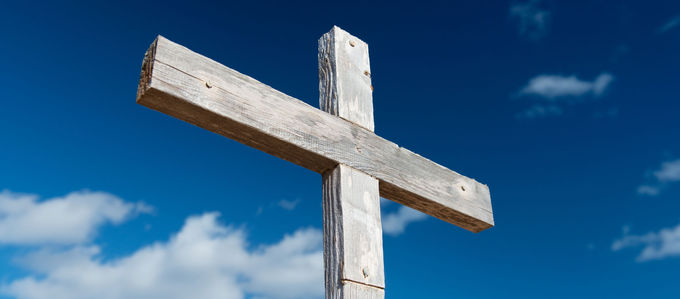Passiontide—from trial to crucifixion
Passiontide reaches its culmination with today's celebration of Good Friday. Today we commemorate Jesus Christ, who gives His life on the cross for mankind. But that is not yet the end of His path...

Passiontide commemorates the sufferings of Jesus Christ. It focuses on the question of why Jesus had to die. The people wanted to kill Him, to be rid of Him—out of sight, out of mind. There is a trial, and it ends with a verdict of guilt. Ultimately, the unfathomable happens: Jesus, the Son of God, is condemned, tortured, and crucified.
The first interrogation before Pilate
Early in the morning, the priests and members of the high council bring Him to the fortress of Antonia, where Pilate resides. Owing to the involvement of the Roman governor, responsibility for the interrogation and ensuing execution of Christ no longer rests with the Jews alone. Both Jews and Gentiles—in other words, human beings in general—kill the Lord together.
The interrogation before Herod
Herod, who was surnamed Antipas, was also to have his say. In so doing he hopes that the Lord will perform some kind of sign, and thus asks Him many questions—but Jesus remains silent. His verdict: send Him back to Pilate. It is on this day that Herod and Pilate become friends.
The sentence
The Son of God is scourged by the Romans. The soldiers weave a crown of thorns for Him, place it on His head, clothe Him in purple, and then mock and strike Him in the face. Pilate asks Him one last time: "Where are You from?" But he receives no answer. He then has Him led out and sits down on the judgement seat. "Away with Him, away with Him! Crucify Him!"—such was the merciless sentence pronounced by the people, which Pilate did not oppose. He takes water, washes his hands in the presence of the people, and says, "I am innocent of the blood of this just Person. You see to it."
The crucifixion—the sacrificial death
Together with Jesus, two criminals are led to Golgotha, the place of execution that lies outside the gates of the city. They give Jesus vinegar mixed with gall to drink. But He refused the drink. Then, at about the third hour—that is, around nine o'clock in the morning—the soldiers crucify Him between the two criminals. On the cross there is a title that reads "INRI", an abbreviation for the Latin words: "Iesus Nazarenus Rex Iudaeorum". At the sixth hour—which would be twelve noon by our time reckoning—a great darkness covers the entire land, and it lasts until the ninth hour, that is, until three o'clock in the afternoon. It is at this point in time that the Lord cries out: "My God, My God, why have You forsaken Me?" And soon after He cries out again: "Father, into Your hands I commit My spirit." And as He speaks these words, He dies.
The fledgling community that has flocked around the Lord lapses into lethargy. The story of Jesus' sufferings is later reflected in the sufferings of many of His followers. Thus His death on the cross at first seems like a great failure. As a result, the resurrection of the Lord on Easter morning has even much more of a liberating effect.
Photo: contrastwerkstatt - Fotolia





